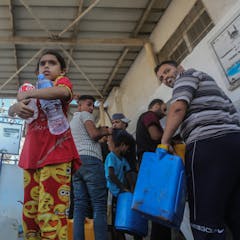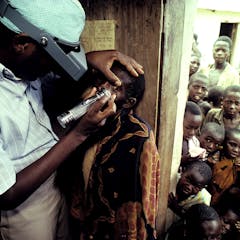
Articles on Sanitation
Displaying 1 - 20 of 95 articles

Critics have described Ghana’s emissions tax as premature.

In rural Ghana, only 18% of patients believe elephantiasis is a disease. Some others think it is caused by curses or even rain. Only by understanding local beliefs can it be treated effectively.

The struggle with open defecation is a silent emergency, undermining the continent’s efforts towards sustainable development goals.

As the war between Hamas and Israel grinds forward, two experts explain how Israelis and Palestinians have cooperated to tackle their region’s water challenges.

As US cities struggle to reduce homelessness, two scholars explain how planners can reform shelter design to be more humane and to prioritize mental health and well-being.

Ghana’s housing deficit needs immediate attention.

Nigerians lack access to safe water, sanitation and hygiene facilities despite investment in these areas. Procurement law contributes to this inadvertently.

Flushing toilets use around nine to 12 litres of water per flush. And that is potable water.

Ultraviolet radiation at specific wavelengths is great at killing germs – but when used incorrectly, it can also cause health risks.

You’re meant to carry out your poo, if you visit Australia’s alpine backcountry. But not many people do – and it’s leaving plenty of evidence.

South Africa’s water situation is complex. It needs better monitoring and implementation of plans.

Cameroon’s Anglophone crisis could escalate into a complex disaster emergency with dire environmental consequences.

500 million people live in 19 African countries deemed “water insecure”.

Female residents of Indonesian fishing village Tambak Lorok show a unique response in dealing with the pandemic.

Access to water and other sanitation infrastructure depended on income level.

The government must shore up efforts to finance water and sanitation in Nigeria.

Victorian-era engineering is struggling under decades of underinvestment.

The Nigerian government must shore up efforts to stop the pollution of aquatic environments.

The Gambia’s success in eliminating trachoma means that resources previously allocated to combating the disease can now be reallocated to other public health conditions

While investments are important, what’s more important is the process and mechanisms through which Indigenous people access funding.
